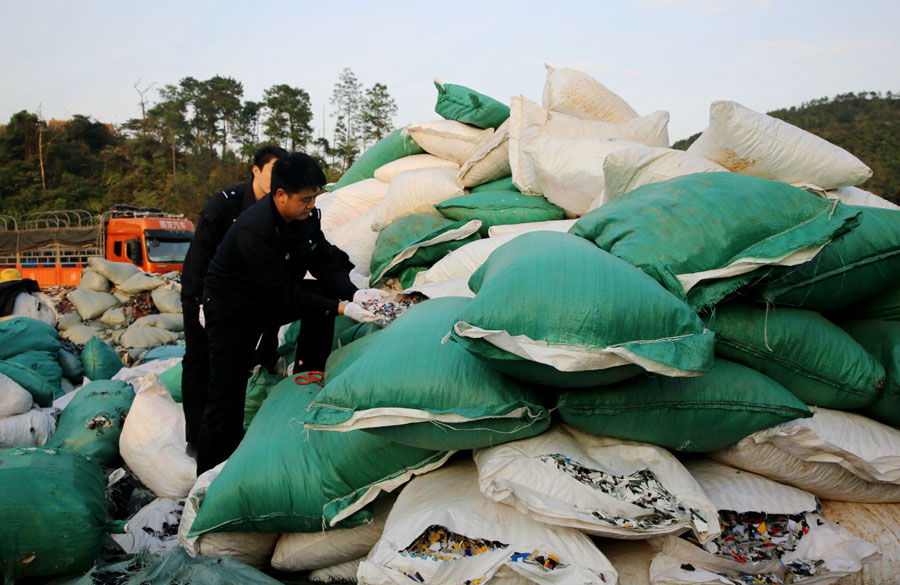Waste ban prompts rethink on plastic


"These countries are going to have to figure out alternative and responsible ways to deal with the plastic waste that has been historically collected and managed by China. The world cannot continue to depend on one country or one region to manage plastic waste," she said.
China's ban is likely "driving increased costs for recycling" as well, Brooks said.
Only 9 percent of plastic waste has been recycled worldwide, according to the Environmental Protection Agency in the US, with the overwhelming majority of it (80 percent) being sent to landfills, or contaminating the environment. Various sources estimate that between 4 million and 12 million tons of such waste enters the oceans every year.
Consumers in the US use 245 billion plastic beverage containers a year.
Brooks said, "It doesn't seem that plastic production is going to be decreasing in the near future."
The study points out that plastic, a major commodity on a global scale that has entered almost every aspect of human life, "is a very useful material (moldable, durable, light and inexpensive), and packaging is the most significant sector (with 40 percent of its use)".
The use of plastic in production has outpaced almost all other manufactured materials-rising from 2 million tons in 1950 to 322 million tons in 2015, making for a total of 8.3 billion metric tons.
The big problem is plastic for single-use purposes, such as drinking straws, cups and food wrappers, which comprise 61 percent of beach litter worldwide.
Brooks and her co-authors call for "more-robust recycling programs" and "bold new ideas and system-wide changes" to tackle the challenge.
"Innovation and technology that increases the value of plastic waste would lead to higher demand so that less gets leaked into the environment, and so there is a higher demand for recycling domestically," she said.
The trade newspaper and digital platform Plastics News carried out a survey of North American recyclers to see how China's ban has affected their bottom lines. Judging by the comments from the 36 companies that responded, the impact has been mixed.
Video: Say no to single-use plastics
One-in-four reported higher volumes of the material, up by an average of 29 percent.
However, one of the comments was, "National Sword has killed my business."
Another stated: "It is flooding the market with excess material, driving the value of the material down excessively. There are fewer recycling alternatives, with access to China being denied."
One recycler said, "The National Sword program has not impacted us too much, but it's a wakeup call to all US recyclers."
Others said the ban was good for business.
"National Sword has actually helped us. We are getting less trash and have found new domestic buyers for most of the material previously sent overseas, at better prices." another recycler said.
Another observation was, "Forcing Chinese processors to relocate elsewhere in Asia has also balanced demand across the market."
Khadem Mahmud Yusuf, a scrap reprocessor from Bangladesh, told Plastics News: "I think[the ban] is a very good thing. Environmental awareness is coming to China."




































